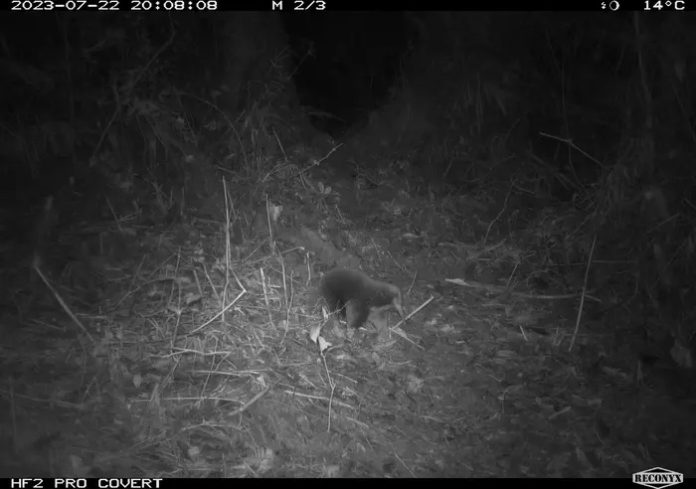An iconic, egg-laying mammal, Attenborough’s long-beaked echidna, previously unseen for over sixty years, has been rediscovered in the Cyclops Mountains of Indonesia’s Papua Province. In an unprecedented expedition led by the University of Oxford, the rediscovery of this elusive species was accompanied by several other extraordinary findings, including the rediscovery of Mayr’s honeyeater and the identification of new species of insects and an entirely new genus of tree-dwelling shrimp.
The echidna, a rare monotreme species, was last recorded in 1961, and its recent documentation was made possible through the deployment of remote trail cameras across challenging, inhospitable terrain. Despite the daunting conditions, the expedition also revealed a trove of diverse underground species and a previously unknown cave system.
The team’s findings were the result of painstaking research over three and a half years and extensive collaboration with local communities, particularly the village of Yongsu Sapari. Alongside the biological discoveries, the expedition also conducted geological analyses with rock samples collected from the Cyclops Mountains, shedding light on the region’s formation.
However, the exploration was fraught with peril, including venomous creatures, earthquakes, leeches, and exhausting heat. Despite these challenges, the team demonstrated remarkable resilience and camaraderie, further strengthening their commitment to conserving the Cyclops Mountains and supporting the Indigenous Papuans in protecting their natural environment.
The rediscovery of Attenborough’s long-beaked echidna marks the beginning of a mission aimed at conservation and long-term monitoring of the region’s biodiversity. The team remains dedicated to further research, which is expected to yield more new species and deepen the understanding of this extraordinary and endangered ecosystem.















